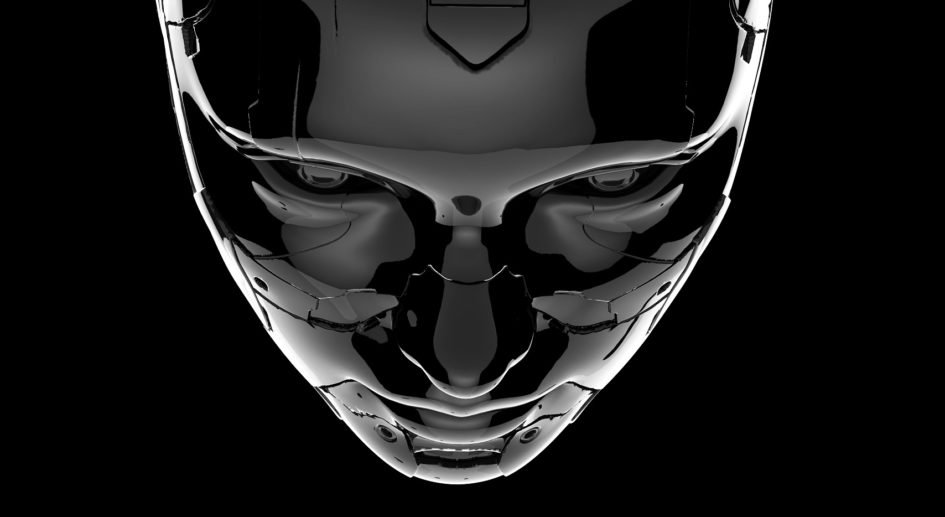| The following piece is FRActal MEtafiction (FRAME); a Futurist Arts & Culture paradigm which draws upon the concepts of Culture Mining and Gamification, and is inspired by artists such as William S. Burroughs, J.G. Ballard, Joseph Cornell, Andy Warhol, and Marcel Duchamp, in addition to Postmodern theorists such as Jean Baudrillard. |
[5 1051] Twenty Thousand Years
[from “The Singularity Is Near”, by Ray Kurzweil]
Thus the twentieth century was gradually speeding up to today’s rate of progress; its achievements, therefore, were equivalent to about twenty years of progress at the rate in 2000. We’ll make another twenty years of progress in just fourteen years (by 2014), and then do the same again in only seven years. To express this another way, we won’t experience one hundred years of technological advance in the twenty-first century; we will witness on the order of twenty thousand years of progress (again, when measured by today’s rate of progress), or about one thousand times greater than what was achieved in the twentieth century.
At an early-2000s rate of progress, what changes might you expect to see after 10 years? 100 years? 1,000 years?
[6 5607] The Effect of Living Backwards
[from “Alice’s Adventures in Wonderland” by Lewis Carroll]
‘That’s the effect of living backwards,’ the Queen said kindly: ‘it always makes one a little giddy at first — ‘Living backwards!’ Alice repeated in great astonishment. ‘I never heard of such a thing!’ ‘— but there’s one great advantage in it, that one’s memory works both ways.’ ‘I’m sure mine only works one way.’ Alice remarked. ‘I can’t remember things before they happen.’ ‘It’s a poor sort of memory that only works backwards,’ the Queen remarked. ‘What sort of things do you remember best?’ Alice ventured to ask. ‘Oh, things that happened the week after next,’ the Queen replied in a careless tone.
The possibility of “backward” timelines intersecting with our own unites certain Pre-Socratic philosophers, 20th Century alt-culture luminaries such as Bowie and Philip K Dick, and modern speculation in the physics of gravitationally manipulated light cones.
[7 8174] The Surgeon’s Hand Rests Deep
[from “Superhumanism” (an interview with Hans Moravec)]
Another scenario for anyone who’d like to escape the constrictions of dull old human biology: a futuristic robot surgeon peels away the brain of a conscious patient, using sensors to analyze and simulate the function of every neuron in each slice. As Moravec puts it, “Eventually your skull is empty, and the surgeon’s hand rests deep in your brainstem. Though you haven’t lost consciousness, your mind has been removed from the brain and transferred to a machine.”
If you object to the replacement of your neurons leading to the continuation of a true “you”, can you explain at what point natural replacement of biological cells causes you to cease being yourself?
[8 3815] Awake
[from “Eight O’Clock in the Morning” by Ray Nelson]
At the end of the show the hypnotist told his subjects, “Awake.”
Something unusual happened.
One of the subjects awoke all the way. This had never happened before. His name was George Nada and he blinked out at the sea of faces in the theatre, at first unaware of anything out of the ordinary. Then he noticed, spotted here and there in the crowd, the non-human faces, the faces of the Fascinators. They had been there all along, of course, but only George was really awake, so only George recognized them for what they were. He understood everything in a flash, including the fact that if he were to give any outward sign, the Fascinators would instantly command him to return to his former state, and he would obey.
Implicit societal control will not magically cease to exist because of Transhumanist technologies, and may well be enhanced by them. Is that a problem, and if so how can it be guarded against?
| Thoughts to frame@zerostate.net or in comments below may be rewarded with ARG info. Conversations held elsewhere and linked back to that address or comments below will definitely win clues, hints, & info. |

4 Pingbacks